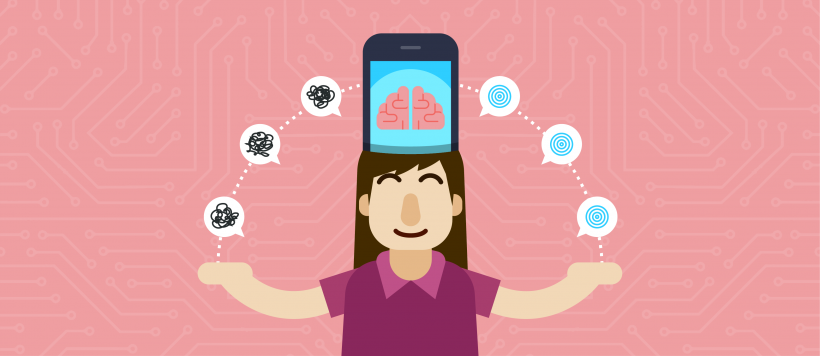
The Role of Technology in Mental Health – Trends and Innovations
By Udit Agarwal

In recent years, the intersection of technology and mental health has become increasingly prominent, with innovative solutions emerging to address the growing global burden of illness. Technology is revolutionising how mental health care is delivered and accessed. From mobile apps and wearable devices to virtual therapy platforms and AI-driven interventions. This article explores the role of technology in mental health, highlighting key trends and innovations shaping the future of health care.
Mobile Apps and Digital Mental Health Tools:
One of the most significant advancements in health technology is the proliferation of mobile apps and digital tools designed to support well-being. These apps offer many features, including mood tracking, meditation exercises, cognitive behavioural therapy (CBT) modules, and relaxation techniques. Popular apps like Headspace, Calm, and Moodfit provide users with accessible and affordable resources. To manage stress, anxiety, depression, and other health conditions from the comfort of their smartphones.
Teletherapy and Virtual Counseling Platforms:
Teletherapy and virtual counselling platforms have gained momentum as viable alternatives to traditional in-person therapy sessions, particularly in light of the COVID-19 pandemic. These platforms connect individuals with licensed therapists and counsellors through secure video conferencing and messaging tools, allowing for convenient and confidential health support from anywhere with an internet connection. Companies like Talkspace, BetterHelp, and Amwell offer a wide range of therapeutic services tailored to client’s needs, including individual therapy, couples counselling, and group sessions.
Wearable Devices for Mental Health Monitoring:
Wearable devices, such as smartwatches and fitness trackers, are increasingly incorporating features to monitor and track. Mental health indicators alongside physical activity metrics. These devices can detect changes in heart rate variability, sleep patterns. And stress levels, providing users with valuable insights into their mental well-being. Companies like Apple, Fitbit, and Garmin are integrating advanced sensors and algorithms to deliver personalised feedback. And recommendations for managing stress and improving overall mental health.
AI and Machine Learning in Mental Health Care:
Artificial intelligence (AI) and machine learning (ML) revolutionise health care by enabling predictive analytics. Personalised treatment recommendations, and early intervention strategies. AI-powered chatbots and virtual assistants offer round-the-clock support and guidance to individuals experiencing mental health challenges, providing instant access to information, resources, and crisis intervention services. Additionally, ML algorithms analyse large datasets to identify patterns and trends in mental health outcomes. Facilitating more accurate diagnosis and treatment planning.

Online Support Communities and Peer-to-Peer Networks:
Online support communities and peer-to-peer networks play a crucial role in fostering connection, empathy. And solidarity among individuals affected by illness. Social media platforms, forums, and online chat groups provide spaces for people. To share their experiences, seek advice, and offer support to others facing similar struggles. These communities empower individuals to break the stigma surrounding mental health, build resilience. And cultivate a sense of belonging in a digital age.
Also Read: Predictive Analytics In Healthcare – 10 Use Cases and Real-World Examples
Digital Therapeutics and Prescription Apps:
Digital therapeutics (DTx) and prescription apps are evidence-based interventions designed. To treat specific health conditions under the supervision of healthcare professionals. These apps deliver clinically validated protocols, exercises, and interventions to address symptoms of depression, anxiety, PTSD, and substance abuse disorder. Companies like Pear Therapeutics, Akili Interactive, and Happify Health are pioneering the development of DTx solutions that complement traditional therapy and medication, offering scalable and cost-effective alternatives for managing health disorders.
Conclusion:
As technology continues to evolve, its role in mental health care is poised to expand. Offering new opportunities for prevention, diagnosis, treatment, and support. From mobile apps and teletherapy platforms to wearable devices and AI-driven interventions, the digital revolution in mental health holds the promise of democratising access to care, improving outcomes, and reducing the burden of mental illness on individuals and society. By harnessing the power of technology, we can create a future. Where mental health care is accessible, equitable, and effective for all.